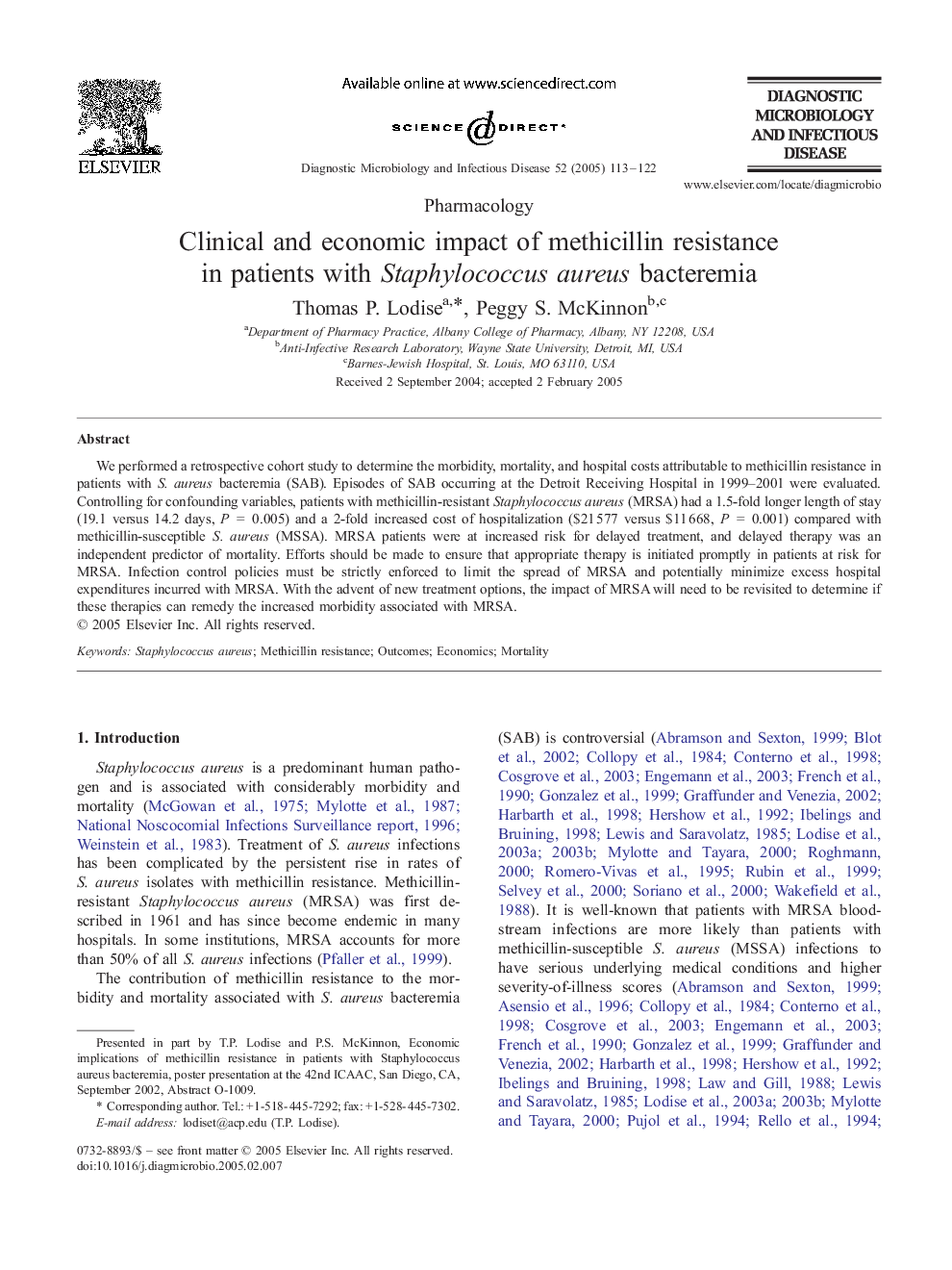| Article ID | Journal | Published Year | Pages | File Type |
|---|---|---|---|---|
| 9263285 | Diagnostic Microbiology and Infectious Disease | 2005 | 10 Pages |
Abstract
We performed a retrospective cohort study to determine the morbidity, mortality, and hospital costs attributable to methicillin resistance in patients with S. aureus bacteremia (SAB). Episodes of SAB occurring at the Detroit Receiving Hospital in 1999-2001 were evaluated. Controlling for confounding variables, patients with methicillin-resistant Staphylococcus aureus (MRSA) had a 1.5-fold longer length of stay (19.1 versus 14.2 days, P = 0.005) and a 2-fold increased cost of hospitalization ($21Â 577 versus $11Â 668, P = 0.001) compared with methicillin-susceptible S. aureus (MSSA). MRSA patients were at increased risk for delayed treatment, and delayed therapy was an independent predictor of mortality. Efforts should be made to ensure that appropriate therapy is initiated promptly in patients at risk for MRSA. Infection control policies must be strictly enforced to limit the spread of MRSA and potentially minimize excess hospital expenditures incurred with MRSA. With the advent of new treatment options, the impact of MRSA will need to be revisited to determine if these therapies can remedy the increased morbidity associated with MRSA.
Related Topics
Life Sciences
Immunology and Microbiology
Applied Microbiology and Biotechnology
Authors
Thomas P. Lodise, Peggy S. McKinnon,
